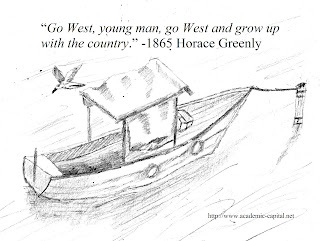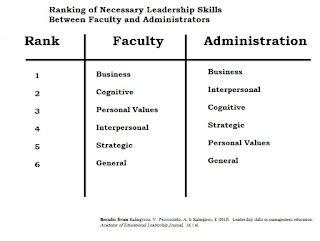Why did you just buy that Chevrolet
and the matching Levi jeans to go with it? What we buy is an expression of who
are and the way in which we view ourselves. New research helps highlight the
concept of national or global self-identities on consumer purchasing behavior.
The reasons why we purchase certain products and services is an expression of
who we are as a person and the way we view ourselves in the national or global
context.
Personality traits of consumers
often influence their perception and willingness to purchase certain national or global
orientated products. The association is because personality traits shape
people’s worldviews and ideological attitudes (Sibley and Duckitt, 2009). How
people view the world has a natural influence on their purchasing behaviors as
they seek self-identification through the obtainment of products.
Understanding people’s perceptions
of themselves within their environments is helpful for
understanding how to develop advertisements that appeal to their target
demographic. A stronger understanding of international markets is gained from
analyzing both the external international marketing environment and the
internal characteristics of personality and collective identity of target
consumers (Myers, Sen and Alexandrov, 2010). It is this combination of personality, identity, and product appeal that makes a huge difference in consumer choice.
People often identify themselves
with local or international groups of people. In an attempt to create consistency
of beliefs and attitudes, they begin to develop purchasing behaviors that
confirm their self-identity and associations. People often develop attitudes and behaviors that
support their concept of self (Zhang and Khare, 2009) and this manifests itself in
the products or services they are willing to spend their money on to support their understandings.
Local
people with national identities will often prefer products from national
markets that reinforce the validity of their beliefs. Those with identities
that are more global will purchase products from international brands that
reflect their beliefs. As the world globalizes and people begin to change
the way they view themselves the products they are willing to purchase will
also change. What we are buying is a reflection on our collective beliefs.
Let
us look at an example that highlights this concept. Watching people you will
find some have a natural preference for high priced products (i.e. Gucci or
similar knock off) while others are more interested the eclectic nature of
their purchases (homespun or handmade). The person who only buys expensive
products, regardless of quality, is seeking identification as someone special
while a person who purchases eclectic products is more orientated toward
self-expression.
Research conducted by Westjohn, Singh, and Magnusson
(2012) conducted at three mid-western universities uses upper level business
undergraduates to understand how local or global self-identities impacted
purchasing behaviors. A usable 205 responses from American citizens were used
in the study. Each participant filled out first a personality survey and then a
few days later a survey on national or international identities.
Results:
-Openness of experience is associated with global identification
while agreeableness is open to national identification.
-National identification on the Local Consumer
Culture Positioning (LCCP) is greater than Global Consumer Culture Positioning
(GCCP).
-Extroversion was negatively associated with GCCP.
Analysis:
The study helps to shed some important light on the
concepts of national and global identity. Consumers still have a preference for
national advertisement over global advertisement because they see themselves within
this context. It also helps to understand how purchasing behavior is really
more about self-validation and creating external behaviors through purchasing
that are consistent with internal beliefs. In essence, all purchasing is an
extension of self which means that all products, services, and operational activities
should be in alignment with the national and global market to have the greatest
consumer appeal.
Westjohn, S., Singh, N. & Magnusson, P. (2012).
Responsiveness to global and local consumer cultural positioning: A personality
and collective identity perspective. Journal
of International Marketing, 20 (1).
Sibley, C. & Duckitt, J. (2009). Big-five
personality, social worldviews, and ideological attitudes: further tests of a
dual process cognitive-motivational model. Journal
of Social Psychology, 149 (5).
Myers, S., Sen, S. & Alexandrov, A. (2010). The
moderating effective of personality traits on attitudes toward advertisements:
a contingency framework. Management &
Marketing, 5 (3).
Zhang, Y. & Khare, A. (2009). The impact of
accessible identities on the evaluation of global values local products. Journal of Consumer Research, 36 (3).


